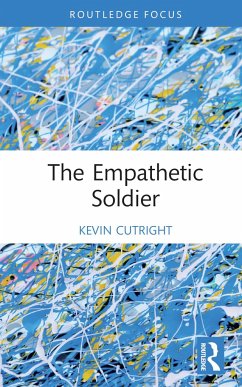This book shows the contribution that empathy can and should make to the proper conduct of war.
US Army doctrine identifies empathy as an essential trait in soldiers; despite this endorsement of senior leaders, empathy's role in the military profession remains obscure. The notion of soldiers empathetically considering others, especially enemies, strikes many as counter to the nature of soldiering. Additionally, confusion caused by differing definitions of empathy often leads to its complete dismissal. This work clarifies the concept by considering recent philosophical, psychological, and neuroscientific research, and demonstrates the relevance of empathy to the tactical and strategic demands of war. Empathy amplifies soldiers' understanding of human actors in an operational environment, enables soldiers' critical and creative thinking, and improves their overall intentions, planning, and assessments of a war's progress. While empathy can make soldiers more susceptible to the psychic wound of moral injury, it also helps prevent and overcome this injury. Instead of dismissing it, soldiers should assimilate empathy into their moral frameworks.
This book will be of much interest to students of the ethics of war, psychology, and military studies generally.
US Army doctrine identifies empathy as an essential trait in soldiers; despite this endorsement of senior leaders, empathy's role in the military profession remains obscure. The notion of soldiers empathetically considering others, especially enemies, strikes many as counter to the nature of soldiering. Additionally, confusion caused by differing definitions of empathy often leads to its complete dismissal. This work clarifies the concept by considering recent philosophical, psychological, and neuroscientific research, and demonstrates the relevance of empathy to the tactical and strategic demands of war. Empathy amplifies soldiers' understanding of human actors in an operational environment, enables soldiers' critical and creative thinking, and improves their overall intentions, planning, and assessments of a war's progress. While empathy can make soldiers more susceptible to the psychic wound of moral injury, it also helps prevent and overcome this injury. Instead of dismissing it, soldiers should assimilate empathy into their moral frameworks.
This book will be of much interest to students of the ethics of war, psychology, and military studies generally.
'A precisely argued, clear contribution to the messy and imprecise discussions on empathy in the morality of war. In particular, the treatment of moral injury is relevant to current discussions of human costs of war for those fighting on our behalf. Must-read for academics and national security practitioners alike!--Pauline M. Shanks Kaurin, Stockdale Chair in Professional Military Ethics, US Naval War College
'A precisely argued, clear contribution to the messy and imprecise discussions on empathy in the morality of war. In particular, the treatment of moral injury is relevant to current discussions of human costs of war for those fighting on our behalf. Must-read for academics and national security practitioners alike!--Pauline M. Shanks Kaurin, Stockdale Chair in Professional Military Ethics, US Naval War College

